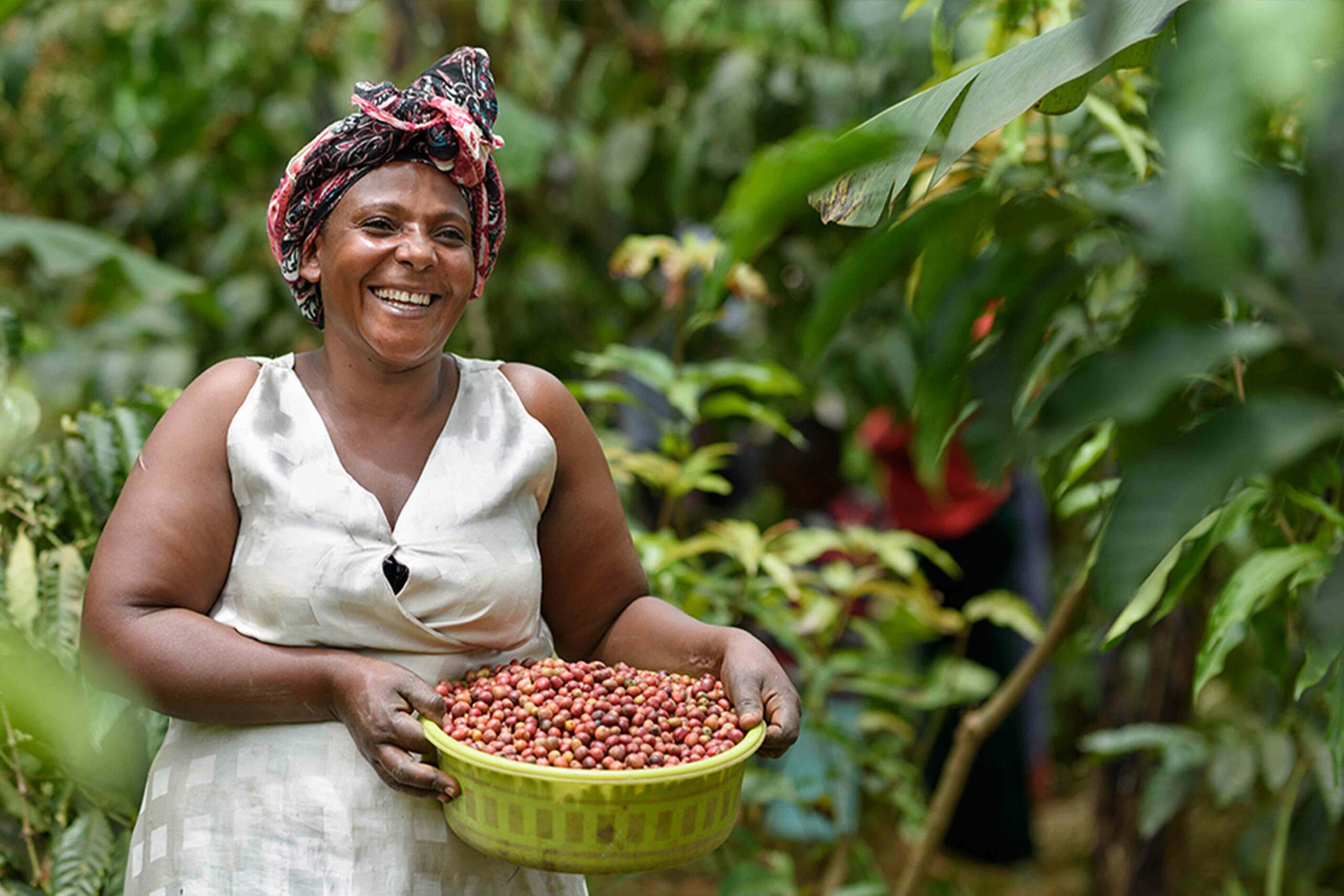Uganda hosted the G25 African Coffee Summit themed “Transforming the African coffee sector through value addition. This was a 3-day event on 7th -10th August 2023 attended by delegates from African member states and institutions discussing ways to boost domestic output, particularly smallholders and add value to coffee-producing countries.

In Uganda, as in many African countries, women play a significant role in agricultural activities, including coffee cultivation.
Photography Credit: Farm Africa / Jjumba Martin.
Coffee is one of Uganda’s most important agricultural commodities and a top export commodity contributing significantly to the country’s foreign exchange earnings. According to the UBOS report 2022, Coffee was the most exported commodity whose revenues decreased to US$ 71.2 million, accounting for 24.1 per cent of total exports in August 2022 in comparison to US$ 83.5 million generated in July 2022
The majority of coffee production in Uganda is carried out by smallholder farmers who own relatively small plots of land. These farmers play a crucial role in the sector’s overall production and contribute to rural livelihoods.
In Uganda, as in many African countries, women play a significant role in agricultural activities, including coffee cultivation. Women often contribute to various stages of the coffee value chain, from nursery management, planting, weeding coffee, irrigation, sorting cherries coffee Roasting, and brewing, however, their contribution is not recognized and still the most marginalized in the coffee system.
Women dominate low-paid intensive labour and unpaid labour on family farms as men dominate technological processes which are a bit higher in the rewards. Women don’t make decisions on the family land where the coffee is grown because they don’t own it as a result of traditional household power relations which limit their access to resources, capital and other assets. The average female farmer earns 38% less than their male counterparts for example in the Kanungu district coffee sector (Farm Africa reports).
In Uganda, as in many African countries, women play a significant role in agricultural activities, including coffee cultivation. Women often contribute to various stages of the coffee value chain, from nursery management, planting,
During the summit, women were well-represented and engaged in panel discussions As a result, women’s issues in the coffee value addition chain were identified as follows; the continuous stereotyping of women’s coffee on the market as poor quality has demoralized women on the market already dominated by men, the cost of standard certification, Excessive taxes at all of the levels, lack financing from banks as they are profit-seekers, not business facilitators. Ms. Martha Wandela, the CEO of KIMCO Coffee Lwengo district, addressed the role of women and the inequalities in the value chain. She added women contribute only 15% ($133m) of the coffee-export value in Uganda. 31% of Arabic nursery farms are owned by women, and only 5.8% of coffee hulling factories are owned by women. Only 17.8% of roasteries companies.
Additionally, women earn low from labour in Lwengo, each kg of coffee is picked at 200 compared to their counterparts who engage in higher-paying technological processes. She recommended women tap into the existing economic programs like the Uganda Women Entrepreneurship Programme (UWEP), tax exemptions on imported coffee machinery, and training programs on value addition. Further, the Uganda Coffee Development Authority was commended for its efforts to create a market for Uganda coffee,
The following recommendations were proposed: need to raise awareness about the importance of women’s participation in the coffee sector among stakeholders, including farmers, community leaders, policymakers, and industry players. This has largely not been the tradition as coffee has mainly been a men’s crop.
Women need to be supported in value addition efforts such as processing coffee into speciality products or engaging in sustainable and innovative practices. This support should be in the form of finances, equipment, and affordable technical training on value addition to innovative practices among others.
There’s a need to ensure that women have equal access to land, credit, inputs (such as seeds and affordable fertilizers), and technology. This can be achieved through targeted interventions, policies, and programs that promote women’s ownership and control over productive resources.
In conclusion, while recognizing efforts made so far in strengthening women’s participation and benefits in the coffee sector, there is still a lot to be done in light of the gaps highlighted above. The culmination of the summit resulted in the Kampala Declaration and we hope that this will be fully implemented by African Coffee Producing Countries as it provides opportunities to harness the potential of Coffee producers particularly women in the coffee value chain.
By Julian Amanya
Programme Assistant -Women in Agri-food system
